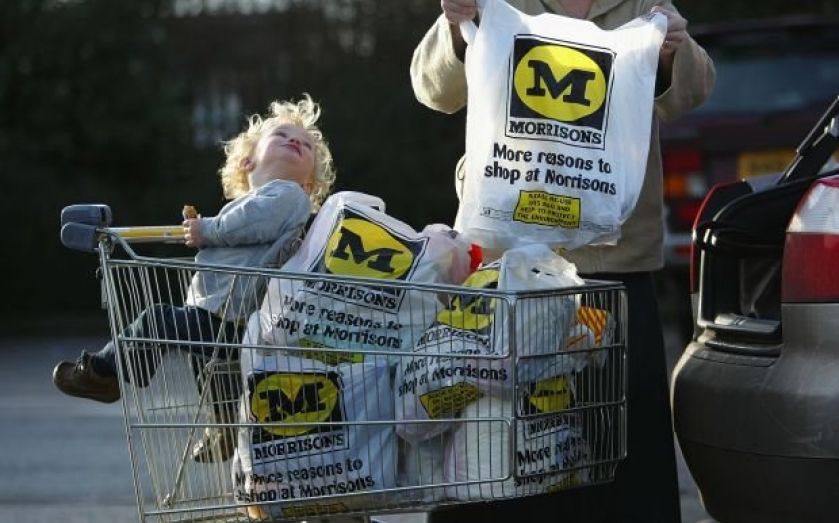| Updated:
Tesco, Sainsbury’s and Morrisons: Have investors given up on supermarkets?

Tesco's share price has fallen 3.4 per cent today. Wm Morrison's has declined by 5 per cent. Sainsbury's share price tumbled 6.6 per cent.
Although they operate in the same sector, each of these three supermarkets is suffering its own problem. So what is happening?
Tesco's well documented £250m black hole in its profits continues to dog it, with the Financial Conduct Authority the latest regulator to announce its interest in the company's accounts.
Yesterday Morrison's, which has already struggled to keep its performance on track, was hit by the news that one of its executives was being charged with insider dealing.
Sainsbury's – arguably the less put-upon of the three – issued a second quarter trading statement this morning showing that sales were down again, leading its share price to tumble.
But these arguably one-off probelms bely the fundamental problems within the sector. Even Sports Direct's punt on Tesco – and public statement saying it backed the long-term outlook for the grocer – did not help its share price.
So what are the real problems – and are investors giving up on supermarkets as a result?
It's no secret that the price war has really dented sales, particularly for the mid-market guys. Sainsbury's being slightly higher-end has probably been protected for a while, but now it seems the consumer has cottoned on to the fact they can get very similar (if not the same) items at budget rivals such as Lidl and Aldi. Most weeks now you hear people praising the German grocers for their range of fresh fruit and veg or – increasingly – their wine selection.
While still the biggest fish in the sea, Tesco has lost market share for several months in a row, as has Sainsbury, and of course Morrisons.
Analyst ratings have been dropped for Tesco (as well as credit ratings) and Morrison's and both stocks are being shorted. Both Tesco and Sainsbury's are now being run by new chief executives and Morrisons will welcome its new chairman Andy Higginson next year.
These are the underlying problem that means even without the particular issues being faced by Tesco and Morrisons, investors are fleeing the sector (for now).
Indeed as Mike van Dulken, head of research at Accendo Markets, said:
The shelves of worry continue to be stacked at the UK grocers and share prices are reflective with ugly downward trajectories. Could accounting issues be widespread? Can we trust the fat cats at the big names we shop from? Are the discounters winning? What does the future hold for the traditional ‘big shop’?
Sadly, those supermarkets that are doing well – basically Aldi, Lidl and, to a much lesser extent, Waitrose – are either private businesses or cooperative partnerships.
But can it be all that bad for the investable stocks in this sector?
Well, John Ibbotson, director of the retail consultancy Retail Vision, seems to think so:
Expect this situation to go on for years, with the low cost discounters the only winners. The only limit is how many stores they can open. Who would be the chief executive of a big four supermarket chain? With the exception of Asda, all are losing market share.